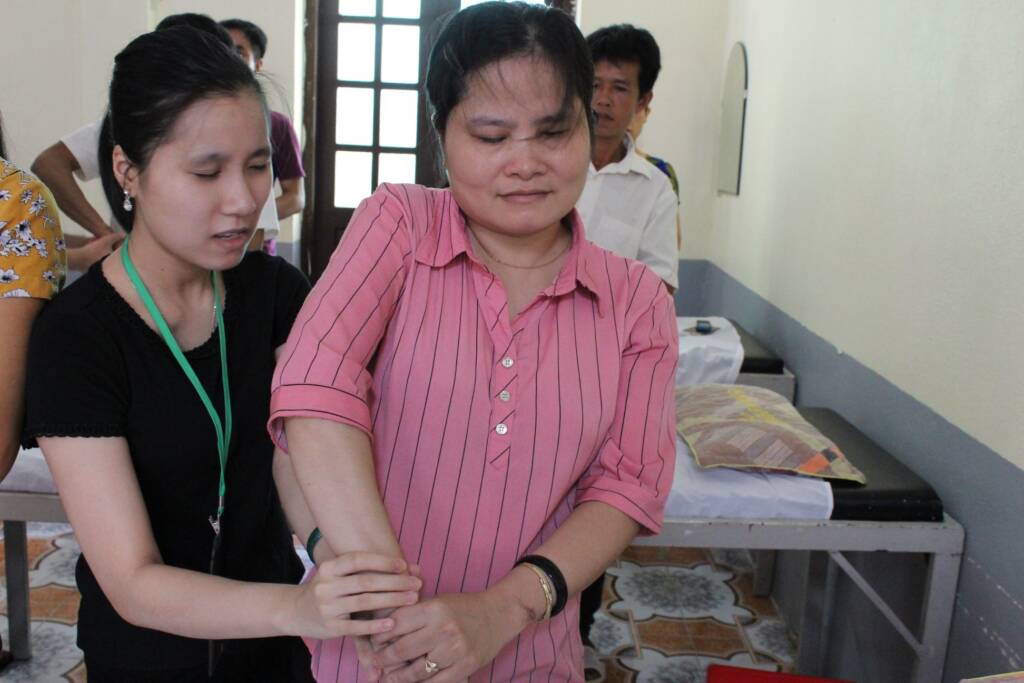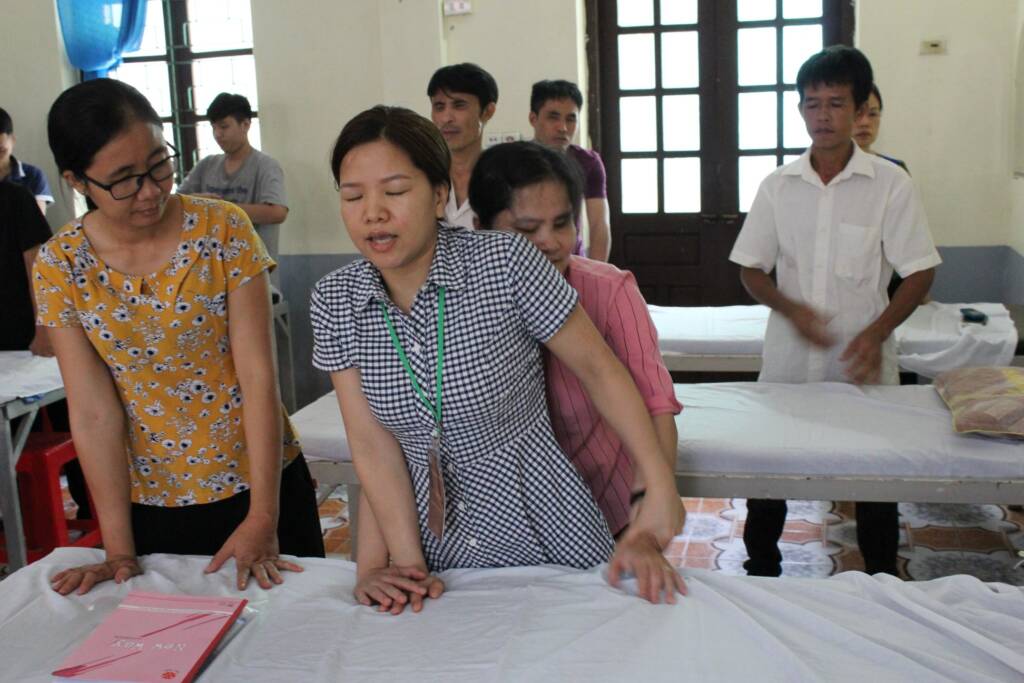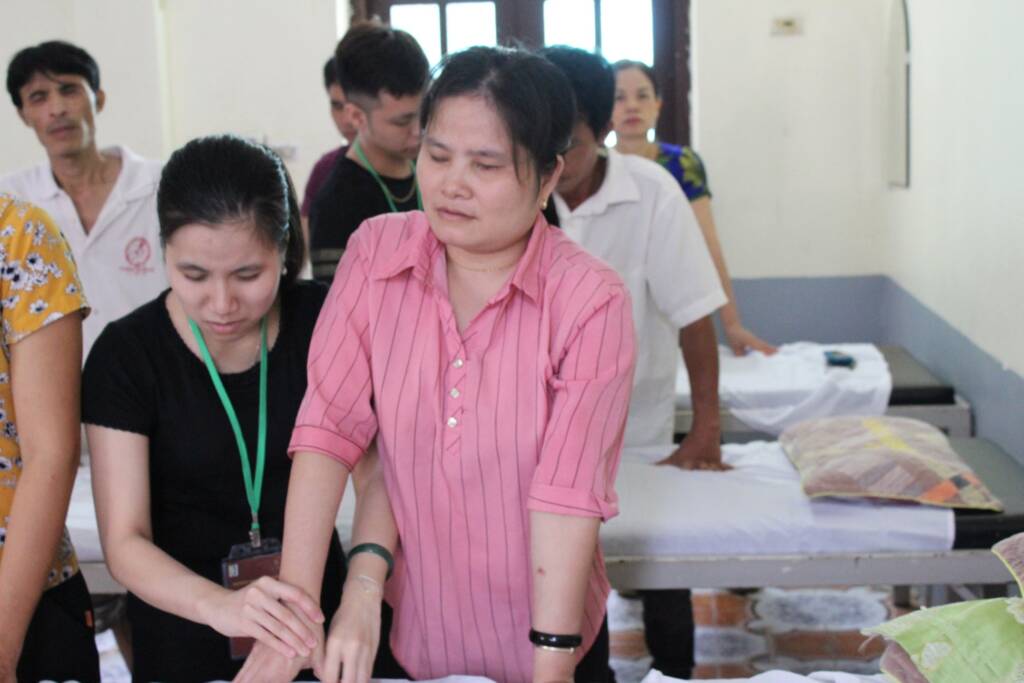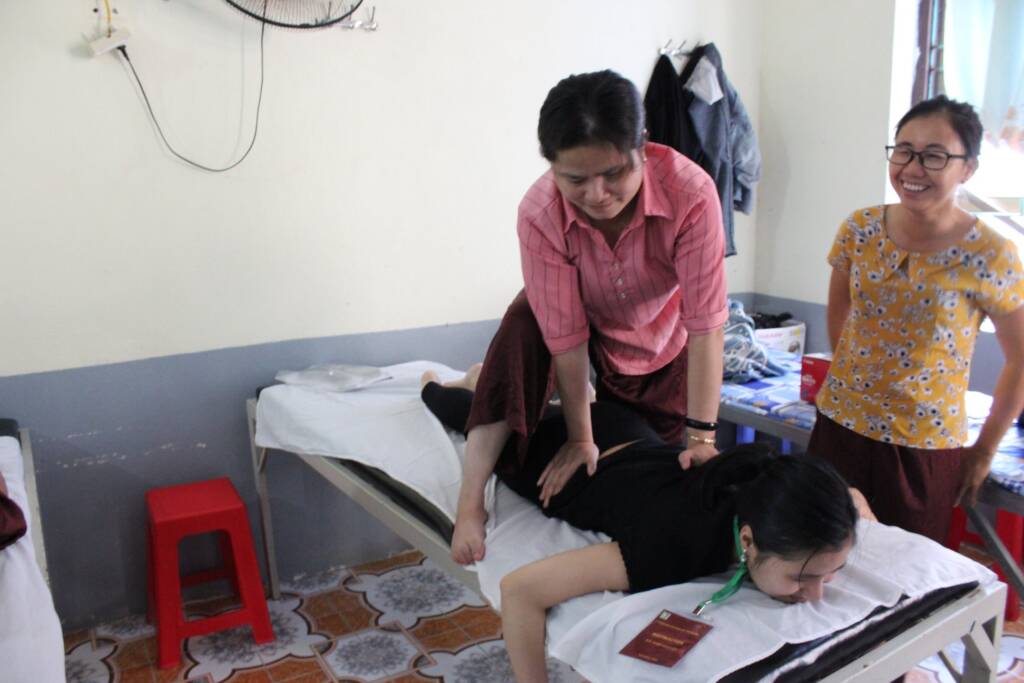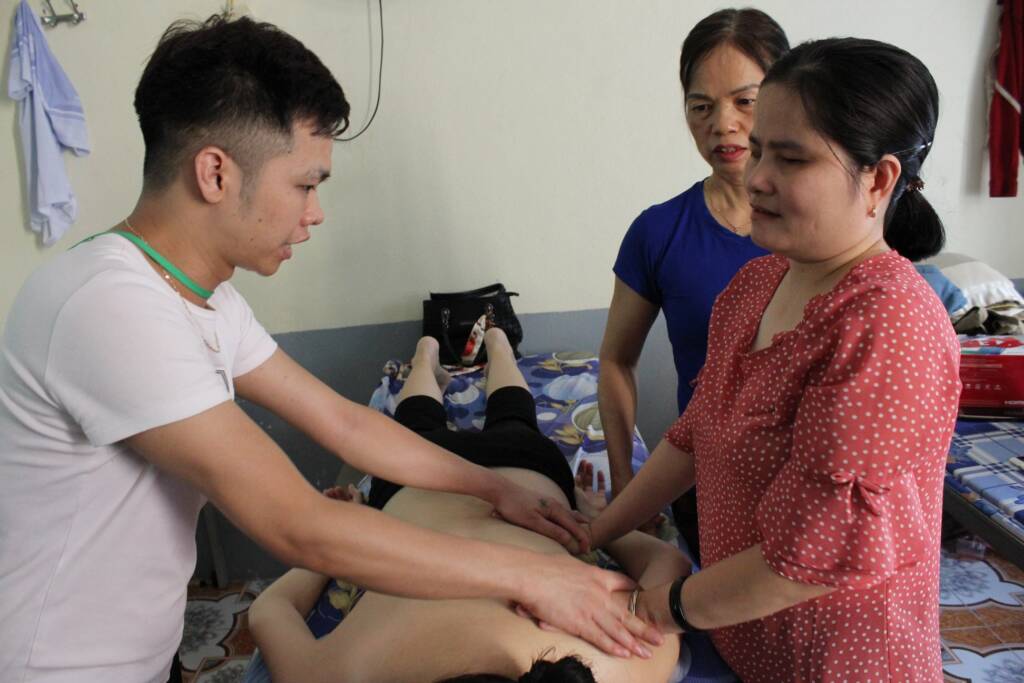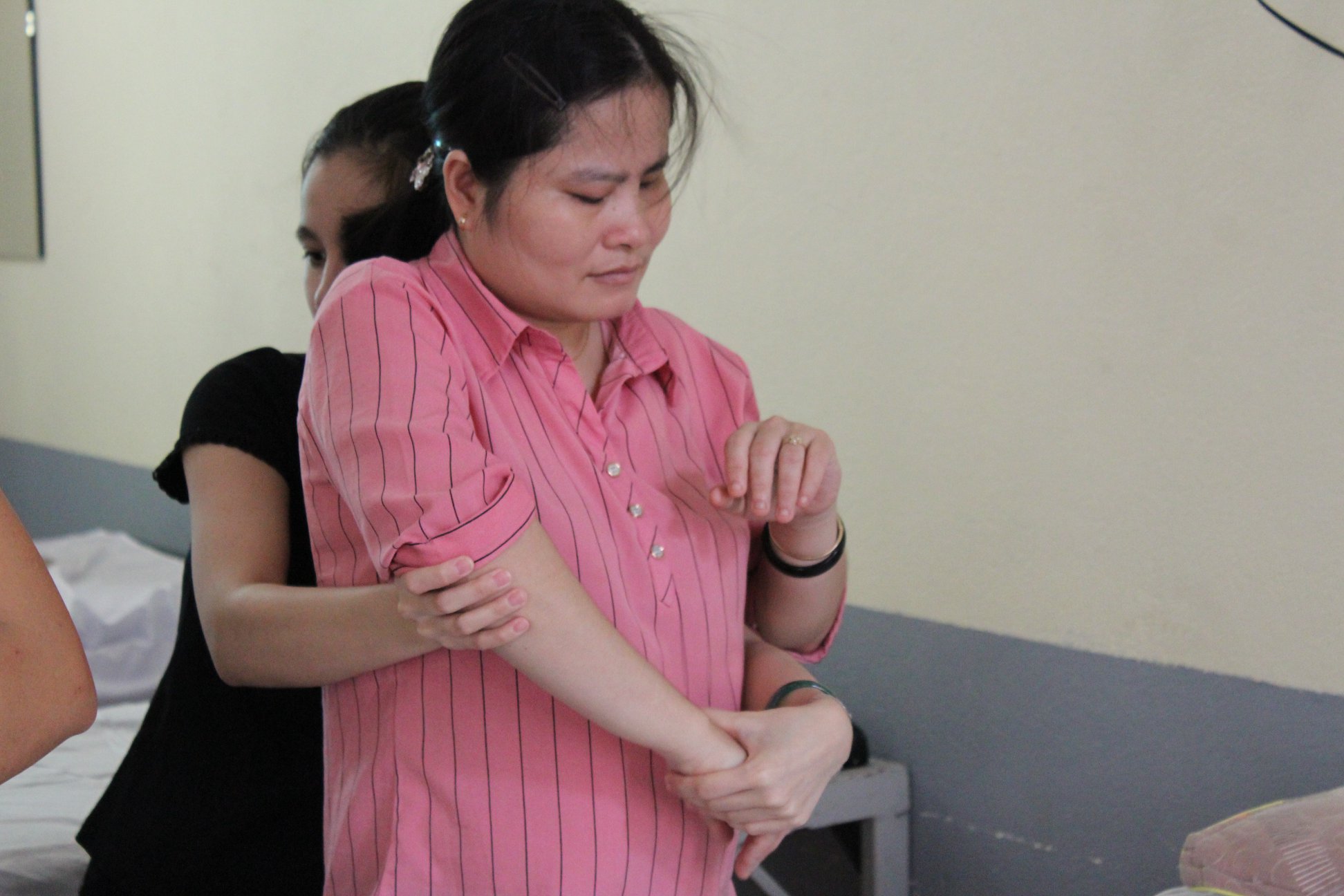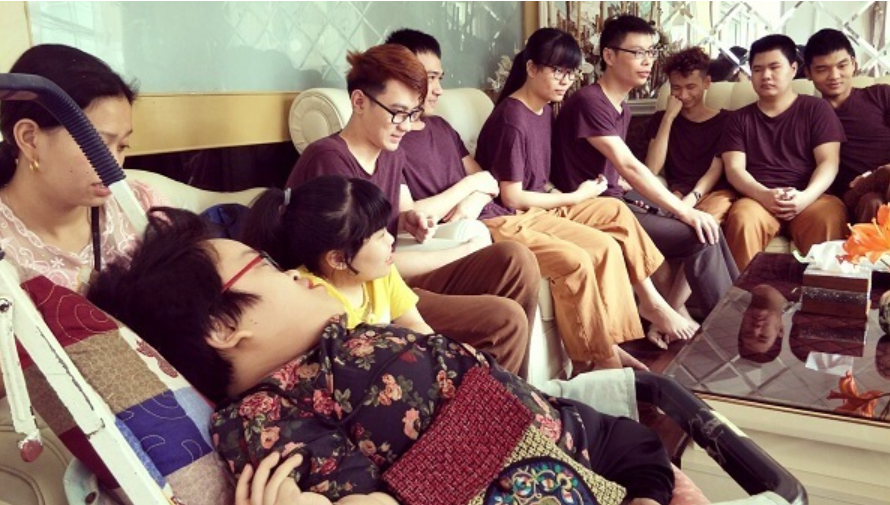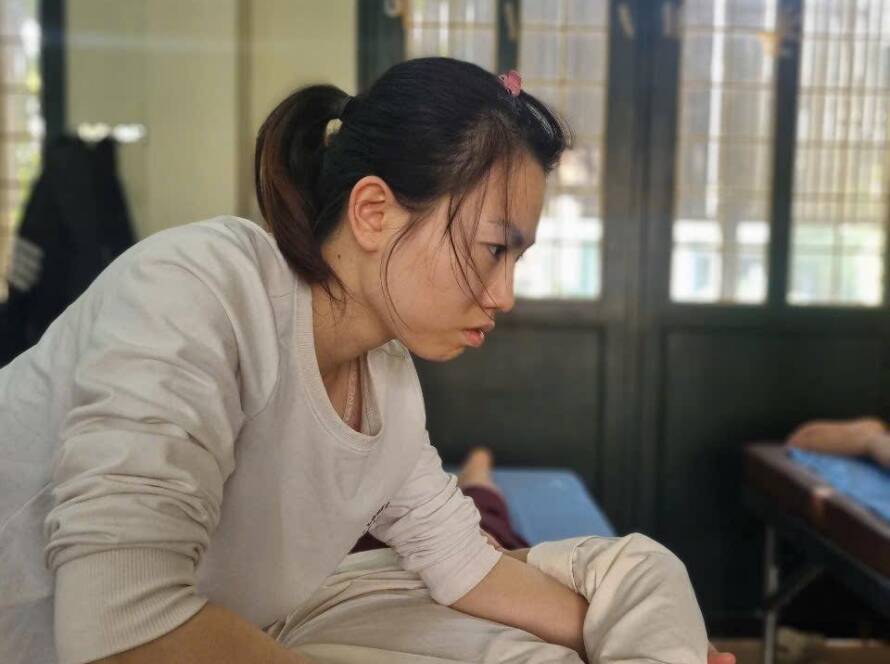Lê Thị Đào, 36, from the humble village of Yên Khánh in Ninh Bình province, embodies an extraordinary spirit of perseverance. Born into a family of three siblings, Đào and one of her younger sisters faced the profound challenge of congenital blindness from birth. While Đào is completely blind, her sister lives with partial visual impairment alongside a mental developmental delay. Their parents, resilient farmers, faced additional hardship as their father served in the border war with China in 1979.
With no sight, traditional schooling was out of reach for Đào. At age six, the commune attempted a special class for completely blind children, but the teacher lacked experience, and the class soon closed. Due to their dire financial situation, Đào was sent to live with her grandparents and other relatives in a neighboring village until she was ten, a period she believes profoundly shaped her. “If not for them,” she muses, “my life might’ve gone towards an entirely different path, like my sister’s.” Her sister, despite some residual vision, stayed at home, as their parents, busy working to afford treatments, couldn’t provide the external engagement she needed. As a result, her sister’s development was slower, and she struggles with self-care. Đào, however, was encouraged to follow her grandparents and relatives everywhere, fostering interactions with many people and playing with other children. Her favorite childhood game was “Follow-the-Leader,” where she often found herself in the middle or back of the line, holding tightly to the shirt of the person in front, a vivid metaphor for her early life.
One day, while playing barefoot on rice husks near a friend’s family rice mill, an innocent game took a terrifying turn. Invited to wash their feet, Đào, unable to see, accidentally fell into a well. Her friends, terrified, screamed for help. Fortunately, a customer arrived just in time to rescue her.
Đào vividly remembers her parents’ desperate search for a cure for her and her sister’s eyes. “When my sister and I were young, our parents brought us to many places, in hopes of curing our eye conditions. They sold all the pigs, all the chickens then had to pay for the treatments. Any potential hope at all, there we went.” She recounts a chilling experience with a herbalist in Nghệ An: “She poured medicine into a glass of boiling water, then told us to put our eyes near it, to ‘receive the medicinal steam.’ After that, she stated that to cure our conditions, every time a family member eats betel nuts, they should use their tongue to flick our pupils. I should get better after doing it a few times. I am still afraid, to this day.”
At nine, Đào’s life gained new direction when she joined the Blind Association of Kim Son district, Ninh Binh province, where she finally learned Braille. Her natural singing talent was soon discovered, leading the Association to send her to Hanoi for a month-long vocal course. She quickly became the “songbird” of the Ninh Binh Blind Association, participating in visually impaired entertainment competitions nationwide.
Despite her passion for singing, Đào knew it couldn’t sustain her. So, in 2006, she dedicated six months to learning “tẩm quất” (traditional Vietnamese massage), driven by a desire for financial independence. Upon graduation, she returned home to work at a local “tẩm quất” center for the visually impaired. In 2017, a pivotal decision was made: she and her colleagues secured a bank loan, mortgaging family land, to purchase a permanent location for their center. The period after borrowing was filled with anxiety about customer flow and revenue. Today, two-thirds of the loan is paid off, and their property has significantly appreciated. In 2019, Đào’s leadership was recognized, and she was nominated as President of the Yên Khánh District Blind Association, taking on the management of the center.
The job, at times, is exhausting, but Đào feels a profound responsibility. The center’s income is the sole source of additional funds for the Association’s operating costs, crucial for organizing activities and assisting members facing illness or other difficulties. Despite occasionally encountering customers with inappropriate behavior, they persevere, understanding the importance of maintaining their client base to support the therapists’ income.
Đào’s childhood dream was simple: to go to school, find a stable job, and not be a burden to her family. Now, after completing a professional Swedish massage course, a new ambition has taken root – to bring this advanced knowledge back to her hometown, to elevate and expand her “tẩm quất” facility. “This course has made me realize many things,” Đào shared. “In the past, I had a very vague understanding of the field of massage; I wasn’t aware of its vastness, as I do now. Because of that, I hope our instructors can come to my hometown to train members at my Association directly.”
During our Swedish massage training course organized in Ninh Binh province, Đào and her peers also had online English speaking lessons with our volunteer from the U.S, Mark – a completely new experience for her. “When I attended the first class, I was extremely nervous,” she admitted. “However, after 1-2 lessons, I started to get used to it, and no longer felt any pressure or fear. Completely unrelated, but based on his voice, I thought the teacher seemed more mature than his age. I hope he maintains good health and teaches other visually impaired like us English.”
Đào also found profound resonance in the movie “Blind Massage,” shown during our ‘Movie without Sight’ program. “I really enjoyed watching the movie ‘Blind Massage’ and even rewatched it two times back home. Tiểu Ma [a character in the movie] left a lasting impression; she was very strong and determined, something that I admire. Love among the blind in the movie – which I can relate to in real life – is very difficult. Parents of a blind person wouldn’t want their child to marry another blind person, and the parents of a sighted person especially wouldn’t want their child to marry another blind person. I think the most important thing, though, is the determination of the people in the relationship.”
Lê Thị Đào’s journey is a powerful narrative of resilience, self-discovery, and an unwavering commitment to her community. She navigates the world not just with her remaining senses, but with an inner vision of hope and a profound desire to make a difference.
